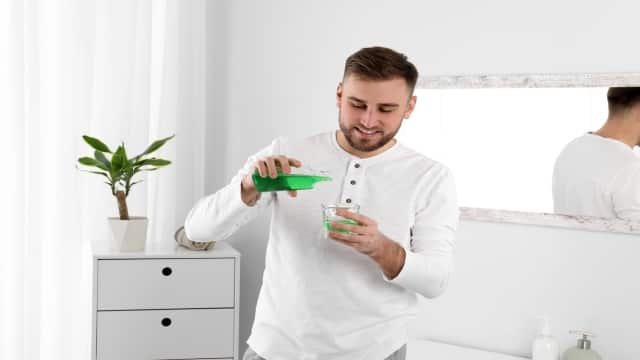The History of Baking Soda and Oral Care
Baking soda has been used to practice oral hygiene for over 100 years. According to a Smithsonian Institute article giving context to products in their Medicine and Science Collections, baking soda was one of the earliest dentifrice (tooth powder or toothpaste) ingredients mixed and sold by druggists. Many ingredients from that time are thankfully no longer in use, like hydrochloric acid, which the Journal of the American Dental Association condemned in 1931. One product using hydrochloric acid was shown to reduce tooth enamel by 3% every use!
Baking soda, however, has stood the test of time. It remains in many kinds of toothpaste today because of its proven safety and effectiveness. Just walk down any oral care aisle, and you'll see baking soda is a featured ingredient in various oral care products.
The Benefits of Baking Soda on Oral Health
A supplement to The Journal of the American Dental Association (JADA) summarized research on the effects of baking soda on oral health and found that:
- It's low-abrasive and safe for daily use.
- Effectively combats bacteria.
- Minimizes the acidity of plaque.
- Aids in the prevention of gingivitis.
- Effectively whitens and reduces stains.
- And helps prevent cavities.
When is Baking Soda Mouthrinse Recommended?
Baking soda mouthwash may be recommended by your dental professional or doctor because it's gentle on your mouth if you have:
- Mouth sores
- Teeth sensitivity
- Throat pain
- Oral cancer
- Burning mouth syndrome
- Or if you are undergoing chemotherapy for other cancers (which can result in mouth sores)
Learn more about the effects of radiation on your mouth.
Why is Baking Soda Mouthrinse Recommended for Pregnant Women?
According to the Cleveland Clinic, 70% of women experience morning sickness. And despite the intuition to brush your teeth immediately after vomiting, it's recommended that you do not. Why?
Because when you vomit, stomach acid may remain in your mouth. By brushing, you're merely scrubbing that stomach acid into your teeth. Use baking soda mouth rinse instead to reduce the acidity in your mouth effectively. If you throw up and don't have baking soda around, rinsing your mouth out with water is the next best option. After waiting for about half an hour, then you should be safe to break out your toothbrush.
Creating An Effective Baking Soda Mouthrinse
Your dental professional may have a recipe of their own for you to try, and if not, here's a simple mixture you can use:
- 1/4 teaspoon baking soda
- 1/8 teaspoon salt
- One cup of warm water
- Follow with a plain water rinse
Can You Have Too Much Baking Soda?
The National Capital Poison Center warns that too much baking soda can be toxic. It's highly unlikely anyone will ingest enough with a mouth rinse to have any adverse baking soda mouthwash side effects, but it's worth noting all the same. Rinse your mouth out well, and don't swallow your mouth rinse to be on the safe side.
How Does Baking Soda Mouthrinse Compare to Over-The-Counter Mouthrinses?
Baking soda mouth rinse is a viable alternative if you need a more gentle approach to oral care. Products you can buy in a store are specifically formulated by scientists and dental professionals with the most optimal oral care needs in mind. They utilize a mixture of powerful ingredients to strengthen enamel, prevent cavities, replenish calcium, reduce plaque, and prevent gingivitis in the best ways advances in science have discovered over the last 100 or more years. All while providing a more pleasant taste than a bitter powder. But for a sensitive mouth, those powerful ingredients can feel too powerful.
It's always a good idea to consult with your dental professional about what toothpastes, mouth rinses, and other dental hygiene products are best suited for your individual needs. Be sure to ask your dentist if baking soda mouth rinse is something they recommend for you. By having an informed discussion, you should make productive decisions together that will help keep your mouth healthy and your teeth bright. Whatever mouth rinse you use, we hope it makes you smile.
This article is intended to promote understanding of and knowledge about general oral health topics. It is not intended to be a substitute for professional advice, diagnosis or treatment. Always seek the advice of your dentist or other qualified healthcare provider with any questions you may have regarding a medical condition or treatment.
ORAL HEALTH QUIZ
What's behind your smile?
Take our Oral Health assessment to get the most from your oral care routine
ORAL HEALTH QUIZ
What's behind your smile?
Take our Oral Health assessment to get the most from your oral care routine















